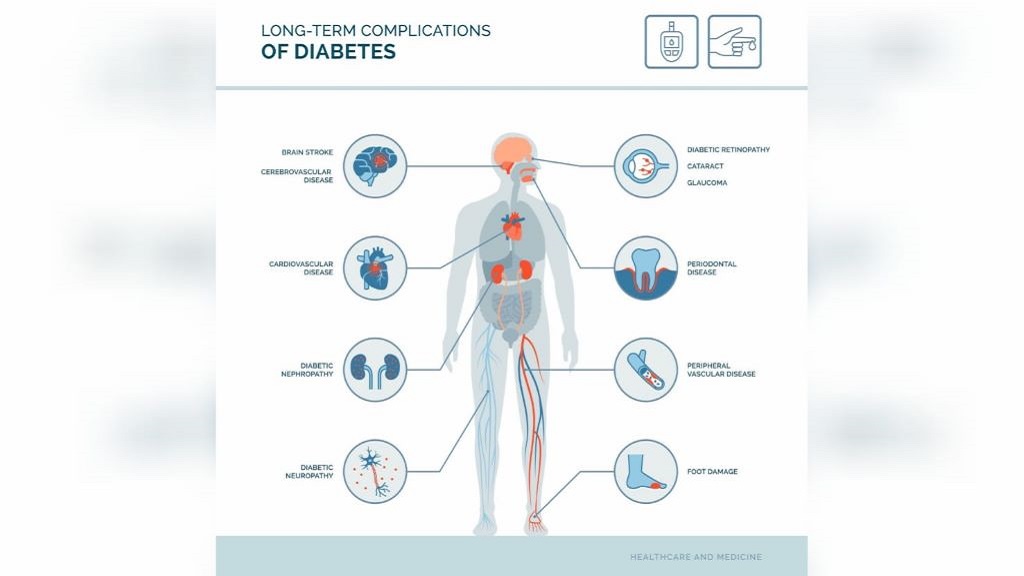
Forty-three-year-old Shaun-Neil Walker has been living with Type 1 diabetes for the past 28 years.
For him, being diagnosed at 15 years old – after displaying classic symptoms of diabetes such as extreme thirst, fatigue and dramatic weight loss – was life-altering.
He explained that when he was diagnosed, Jamaica did not have the technology or modern facilities that exist today, so access to care was wanting.
In type one diabetes, the body does not produce insulin, a hormone that the body needs to get glucose from the bloodstream into the cells.
Also, due to the range of associated health complications — including stroke, retinopathy, heart disease, kidney damage, neuropathy, and amputation — life expectancy is lower for many people with type one diabetes.
Since Walker was diagnosed as an adolescent, his entire family decided to make his diabetes management their mission.
He shared that his mother and brother took turns accompanying him to his doctor’s appointments, monitoring him (even now as an adult) to ensure he takes his insulin to keep his blood glucose levels where they should be, as well as paying close attention to his mental health.
Medical epidemiologist in the Non-Communicable Disease & Injury Prevention Unit of the Ministry of Health and Wellness Dr Julia Rowe Porter said taking care of the mind is just as important as taking care of the body when it comes to living a healthy life.
“When left untreated, mental health conditions like depression and anxiety can make diabetes worse. Likewise, existing diabetes can make mental health conditions worse,” she explained.
(Photo: iStock)
Having lived with the disease for more than half his life, Walker said: “Then, as if diabetes was not enough, I now am battling stage five kidney failure.
Renal failure has added another layer to his medical concern and expense to his treatment regimen.
To date, Walker has undergone 18 surgeries on his eyes and proudly shared that he was the first laser surgery eye patient in Jamaica for revered consultant ophthalmologist Dr Hugh Vaughan.
Running sugars high to avoid hypoglycaemia
The two main areas of Walker’s life that have been affected by his diabetes are work and his ability to participate in sports.
He shared that meetings at work were a concern for him, and to prevent hypoglycaemia, which occurs when the blood sugar level is too low, he would ensure his blood sugar levels were sufficiently high.
However, this wasn’t an ideal solution, even in the short term, as the high blood glucose levels would affect his concentration and performance.
Walker also shared that he is always aware of his blood sugar levels when participating in any sporting activity. Even though exercise is important, he still has to monitor his levels.
So for Walker, the fear of blood sugar fluctuations are very stressful.
“I have noticed that for me, changes in blood sugar can cause rapid changes in my mood and other mental symptoms such as fatigue, trouble thinking clearly, and anxiety,” he said.
Hypoglycaemia at night was also a constant worry for Walker, as he would occasionally wake up sweating and shaking.
Message to others
Walker is cautioning everyone, not just people living with diabetes, to live a healthy lifestyle.
He asserted that everybody should exercise, eat a healthy diet, maintain a weight that fits their height or their body mass index, and try to be as active as possible.
He said, too, that he carefully monitors his blood sugar levels, but it wasn’t until he started visiting the Diabetes Association of Jamaica (DAJ) that his worries over certain daily activities, such as sports, meetings and sleeping, were reduced.
The DAJ, he said, has been a saving grace for me. The access to care, medical service and offerings have all helped to give him a “decent quality of life”, as he can now confront the disease and related complications that have been life-changing for him.









